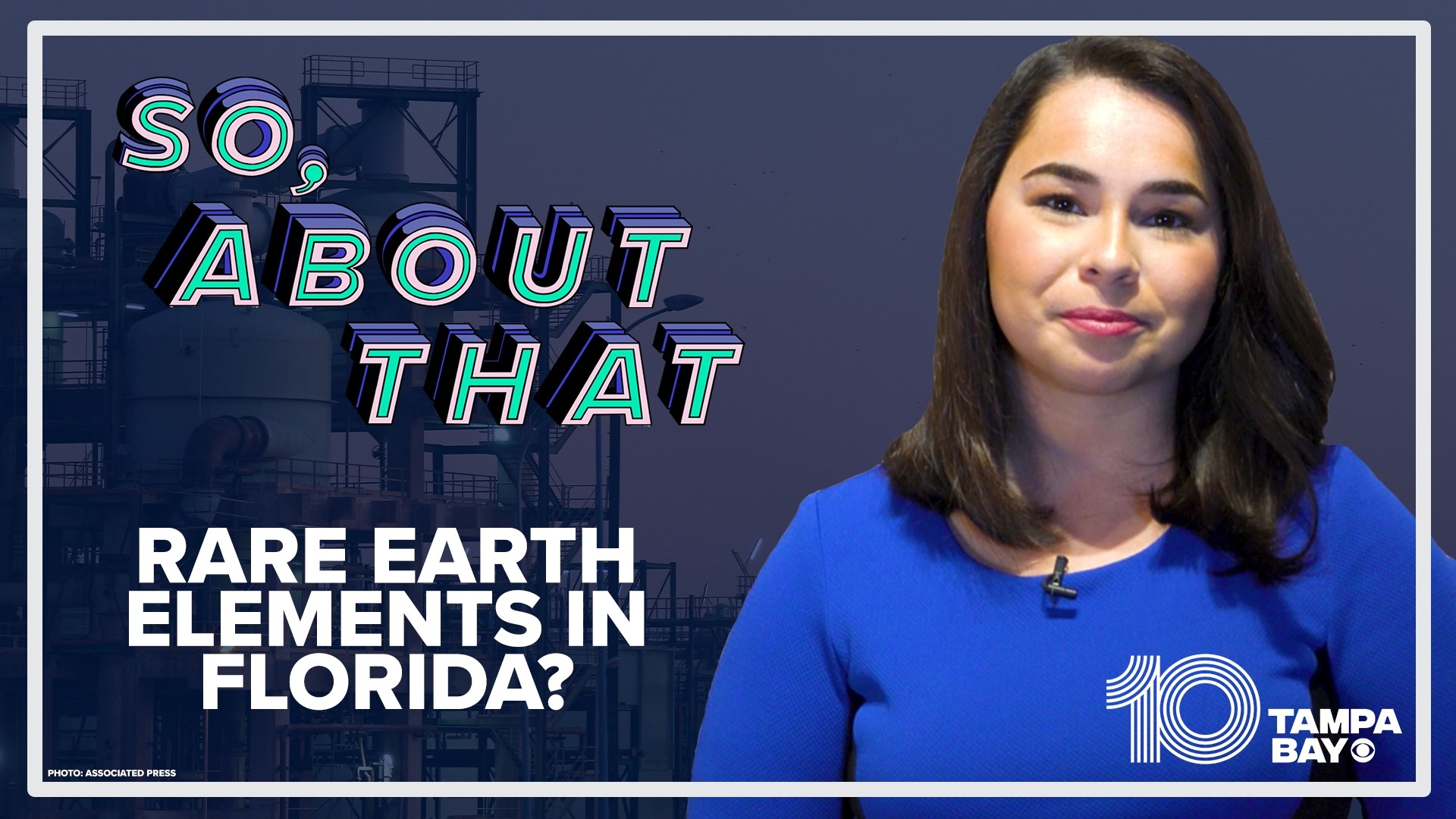TAMPA, Fla. — If you've tried to buy a car recently, you may have noticed prices are awfully high right now.
In 2021, the price of a used car shot up 37 percent. Now in 2022, the average price for a used car is $29,000 dollars.
The news is not much better for new cars. By the end of 2021, average prices had topped $47,000 dollars.
But, why is the car industry seeing skyrocketing prices?
“I recently purchased a vehicle, I couldn’t get any money off the MSRP because the supply of new vehicles is limited because they also have the rare components and semiconductors,” Dr. Jim Mennie said. He’s the business director for Florida Polytechnic University’s Florida Industrial and Phosphate Research Institute.
Because of the pandemic, factories that manufacture parts, like semiconductors, shut down. As demand for cars continued to grow, producers were unable to keep up with the demand, lowering supply and increasing those prices.
Semiconductors are made with rare earth elements, or REEs for short. A lot of these elements aren’t actually that rare in the Earth’s crust, but minable concentrations are less common. The group is made up of 17 elements, and they’re crucial to the production of technology.
The screen of your phone, computers, TVs, hard drives, batteries in electric cars, even newer light bulbs all use these elements.
China absolutely dominates when it comes to the production of REEs. In 2021, the country made up 60 percent of global production. The U.S. falls in a distant second place, producing a little more than 15 percent.
As a result, the U.S. largely depends on imports of REEs from China.
However, Dr. Mennie and Dr. Patrick Zhang, two researchers at FIPR think they may have a long-term solution to make the U.S. more independent.
Bone Valley is a stretch of land more than one million acres in size right outside of Tampa. It’s also home to one of the largest known deposits of phosphates in the United States.
Back in 1895, there were about 400 phosphate mining companies in Florida. Mining was mostly done by hand, and these companies were relatively small.
By 1911, that number dropped to about 30, and more than half of the companies were in central Florida.
Over the next few decades, these companies would continue to consolidate, and by the late 1930s, only nine were left. Today, researchers say there are two major operators.
Mining phosphate is pretty important too. It’s used to create fertilization for soils that may lack phosphates. Experts at FPU say phosphate is necessary for plants to grow; and without it, plants can have stunted growth, be thin-stemmed, and have foliage that darkens in color.
So, what does all of this have to do with technology?
“As part of the phosphate mining process, there is something called phosphoric acid sludge. Contained in that byproduct of phosphate mining is rare earth elements,” Dr. Mennie described.
Florida has tons of phosphate, literally. Reserves alone contain about 10 billion tons of soluble phosphate rock. Experts say based on the current mining rate in Florida, this would last more than 300 years.
Now, Dr. Mennie and Dr. Zhang have received $150,000 from the U.S. Department of Energy for phase one of their project. They will focus on developing a research plan to recover, separate, and purify rare earth elements during phosphate processing.
“The primary goal is to meet the US demand for these critical elements. If we could recover rare earths from the phosphate process just in Florida, we could meet the US demand for many critical elements,” Dr. Zhang explained.
And those rare earth elements found right here at home could be used to build your next iPhone or computer.
“Well, we’re cautiously optimistic about that, and that’s what we hope to do,” Dr. Mennie said.

